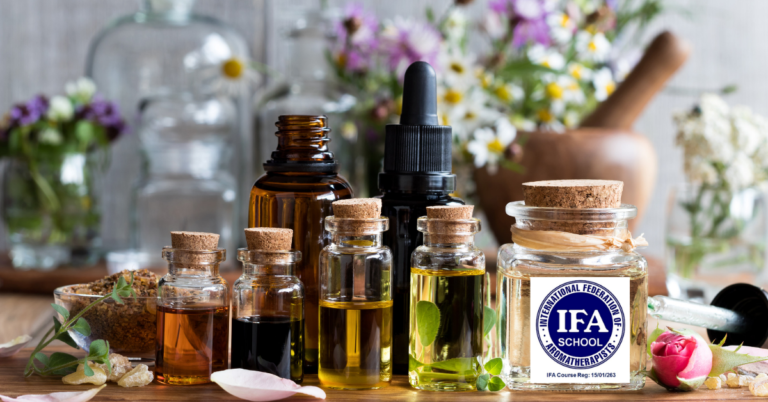Aromatherapy uses 100 per cent pure natural oil from plant extract, or what we usually term ‘essential oil’ for treating specific illnesses. It’s a form of alternative therapy to alleviate illnesses like sinus, fever, flu and cold. The method for treatment can either be through inhalation or direct skin application using diluted essential oil in vegetable oils. Every essential oil has its own therapeutic properties and we should first run a full diagnostic of the illness in order to identify the cause of infection of inflammation. Then, based on the symptoms, choose the appropriate essential oil to treat the condition effectively.
Which essential oils help relieving sinus, fever, flu and cold?
1. Eucalyptus oil
Botanical name: Eucalyptus Globulus (blue gum)
Therapeutic properties: Eucalyptus oil is best known as a decongestant inhaler for colds and catarrh, flu, sinusitis and bronchitis. The aromatic inhalation containing eucalyptus oil can significantly improve respiratory function.
2. Ginger oil
Botanical name: Zingiber officinale
Therapeutic properties: Ginger oil is recommended as an antiviral and immune-stimulant agent to treat the onset of colds and flu, as this oil has been shown to stimulate both T-lymphocytes and cell-mediated immunity. However, it is less useful once the infection has set in and becomes bacterial. Ginger oil is also recommended for catarrhal conditions, coughs, sinusitis and sore throats.
3. Rosemary CT. Cineole oil
Botanical name: Rosmarinus officinalis ct. 1,8-cineole
Therapeutic properties: Rosemary oil has antimicrobial properties and is recommended for catarrhal conditions and respiratory ailments such as bronchitis, asthma and sinusitis.
4. Peppermint oil
Botanical name: Mentha piperita
Therapeutic properties: Peppermint oil is beneficial for fevers and headaches associated with colds and influenza. It is recommended at the onset of a cold to alleviate the symptoms of cold. Peppermint oil is also beneficial for sinus congestion, infection or inflammation. A combination of both topical application of diluted peppermint oil and inhalation of peppermint oil can relieve symptoms of coughs and colds.
5. True Lavender oil
Botanical name: Lavandula angustifolia
Therapeutic properties: True lavender oil I known as an all-purpose oil. Recommended for the treatment of colds, flu, bronchitis, throat infections and catarrhal conditions.
6. Tea Tree oil
Botanical name: Melaleuca alternifolia
Therapeutic properties: Tea tree oil is a very powerful immune-stimulant and when the body is threatened with infection, tea tree oil can increase its ability to respond. It is beneficial to people who have debilitating illnesses such as glandular fever, and those who repeatedly succumb to infections or are very slow to recover from any illness. Tea tree oil is also recommended for the treatment of asthma, sinusitis and whooping cough.
7. Thyme (white) oil
Botanical name: Thymus vulgaria
Therapeutic properties: Thyme oil has strong, broad-spectrum antimicrobial properties and is recommended for the treatment of a wide range of infections. Thyme oil stimulates the production of white blood corpuscles, so it strengthens the body’s immune system. Thyme oil can be used as a respiratory tonic, antiseptic and expectorant. It may also be used for any cold condition involving weakness, congestion or infection of the lungs.
APPLICATION METHOD
Sinusitis
Inhalation
– Drop on collar- 1 o 2 drops of Eucalyptus oil/ Tea tree oil
– Apply with diffuser- 2 drops of Eucalyptus + 3 drops of Tea Tree oil
FEVER, COLD and FLU
Inhalation
– Drop on collar- 1 or 2 drops of Peppermint oil/ Tea Tree oil/ Lavender oil
– Apply with diffuser – 2 drops of peppermint oil + 4 drops of Lavender oil
– Apply with diffuser- 2 drops of Tea Tree oil + 2 drops of Lemon oil + 2 drops of Lavender oil
Massage oil (for rubbing on upper chest only)
– 10ml vegetable oil + 2 drops of ginger oil + 2 drops of Tea Tree oil
– 10ml vegetable oil + 1 drop of Peppermint oil + 1 drop of Thyme oil + 2 drops of Tea Tree oil
AFTER TREATMENT CARE
Drink plenty of water after using essential oil and avoid stimulant or alcoholic drinks. In order for the body to respond well with the treatment and achieve effective recovery, the patient should get sufficient rest.




